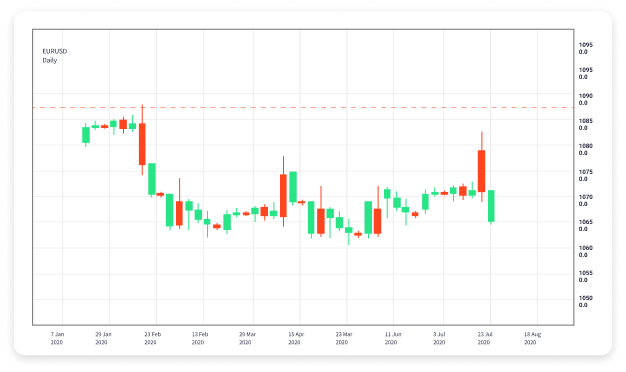
In the rapidly evolving world of financial trading, obtaining a forex trading license is an essential step for anyone looking to operate as a trader or a brokerage firm. The forex market is one of the largest and most liquid financial markets globally, with trillions of dollars traded daily. To successfully navigate this complex landscape, it’s crucial to understand the regulatory environment and the significance of licensing. This article will delve into what a forex trading license entails, the steps to obtain one, and the benefits it can offer to traders and brokers alike. For further information, you can visit forex trading license trading-cambodia.com.
What is a Forex Trading License?
A forex trading license is an official authorization that allows individuals or firms to trade currencies in the forex market. This license is usually issued by a regulatory authority or financial commission in a particular country or jurisdiction. The purpose of this license is to ensure that forex brokers and trading companies operate under strict guidelines, providing a level of security and accountability to traders.
Importance of a Forex Trading License
The forex trading environment can be fraught with risks, including fraud, mismanagement, and market manipulation. A forex licensing system provides a framework aimed at protecting traders while ensuring market integrity. Here are several key reasons highlighting the importance of having a forex trading license:
- Regulatory Compliance: A licensed broker complies with local and international regulations, which helps maintain market order and protect traders from deceitful practices.
- Investor Protection: Regulatory bodies often have mechanisms in place that protect investors, such as compensation schemes for clients if a broker goes bankrupt.
- Credibility and Trust: A license boosts the credibility of a firm, making it more attractive to potential clients. Traders are more likely to engage with brokers who are regulated and licensed.
- Access to International Markets: A valid forex trading license can open doors to international trading. It allows firms to operate in multiple jurisdictions, expanding their client base.
Types of Forex Trading Licenses
Different countries have various regulatory authorities that issue forex trading licenses. The type of license sought often depends on the region in which a trader or brokerage firm plans to operate. Here are some common types of forex trading licenses:
- Full License: This license allows a company to operate as a full-fledged forex broker, offering a full range of trading services, including asset management and investment advice.
- Introducing Broker (IB) License: This license is ideal for individuals or firms that want to introduce clients to a broker but do not wish to handle clients’ funds directly.
- Category 2 License: Often referred to as a dealing license, it allows firms to handle client orders and engage in market making.
- Non-Dealing License: This license permits a firm to execute trades on behalf of clients but does not allow market making or trading against the client’s orders.
Steps to Obtain a Forex Trading License
The process of obtaining a forex trading license can vary significantly depending on the jurisdiction. However, several common steps are typically involved:

- Choosing the Right Jurisdiction: Research and select a jurisdiction that aligns with your business goals and offers a favorable regulatory environment.
- Preparing Documentation: Gather all necessary documents. This may include business plans, financial statements, and proof of adequate capital.
- Application Submission: Submit your application to the relevant regulatory authority along with all documentation and fees.
- Regulatory Review: The regulatory body will review your application to ensure it meets all requirements. This stage may take several months.
- Granting of License: If approved, you will receive your forex trading license, allowing you to begin operations legally.
Benefits of Having a Forex Trading License
Obtaining a forex trading license comes with numerous benefits that can significantly enhance a trader’s or broker’s operational potential:
- Market Accessibility: A licensed broker can access various liquidity providers, leading to better pricing and execution for clients.
- Client Trust: Licensed brokers can attract more clients, as traders feel more secure and protected with a regulated entity.
- Legal Protection: Having a license provides legal protection against fraudulent practices and ensures fair treatment of clients.
- Reputation: As the forex market becomes increasingly competitive, having a license serves as a unique selling point, enhancing the broker’s reputation in the financial markets.
Challenges in Obtaining a Forex Trading License
While the benefits of having a forex trading license are clear, the process can present several challenges:
- Lengthy Process: The application process for a forex license can be time-consuming, often taking several months to complete.
- High Costs: The cost associated with obtaining and maintaining a license can be significant, including application fees, compliance costs, and minimum capital requirements.
- Compliance Obligations: Once licensed, firms must adhere to ongoing compliance obligations, including regular audits and reporting to regulatory authorities.
The Future of Forex Trading Licenses
The regulatory environment surrounding forex trading is continually evolving. As the integrity of the forex market remains a priority for authorities worldwide, we can expect to see further changes in licensing requirements and practices. Emerging technologies such as blockchain and cryptocurrency trading may also influence the future of forex regulations, leading to new opportunities and challenges for traders and brokers alike.
Conclusion
In conclusion, obtaining a forex trading license is a fundamental step for anyone interested in trading or offering forex trading services. While the process may seem daunting, the benefits of having a valid license, including increased client trust, regulatory compliance, and access to international markets, far outweigh the challenges involved. As the forex trading landscape continues to develop, staying informed about regulations and licensing will be essential for continued success in this vibrant market.

Recent Comments